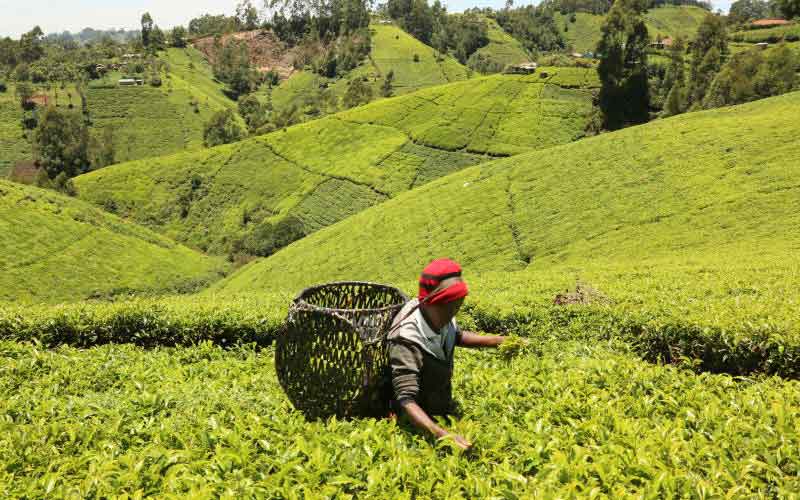×
The Standard e-Paper
Smart Minds Choose Us

Jane Wanja plucks tea leaves on a farm at Rwathia Village in Kangema, Murang'a County.Tea farming is the main economic activity in the area. [Kibata Kihu, Standard]
The looming shutdown of the Mombasa Tea Auction and suspension of three shipping lines from Mombasa port is beginning to have a grave effect on the economy of the Coast and the greater East African region which depends on this gateway.